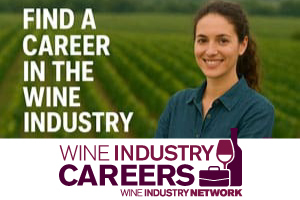Po Box 2089, Napa, CA, United States of America, 94559
Feeds

Loading feeds please wait a moment
About
About WISE
WHY: Strong Leaders. Healthy Teams. Successful Wineries. We believe a rising tide lifts all boats and that the wine industry deserves strong leaders, healthy teams, DTC mastery and winery success.
HOW: We serve by continually raising the bar for professionalism and leadership in the wine industry. We provide opportunities for experiential learning that changes behavior.
WHAT: We are wine industry leaders in professional development, focused on both DTC & General Leadership. We provide Relevant Classes, Mystery Shopping, Coaching, Consulting and Cabinet Programs.
At WISE – which stands for Wine Industry Sales Education – we offer a variety of courses, workshops, and coaching that are interactive and hands-on to help enhance your skills and advance your career.
Courses are designed to deliver take-home value using real-life, relevant examples through a combination of lecture, group exercises, and role play, these classes build on existing skills and teach best practices for meeting the demands of today’s changing DTC marketplace.
Courses are live – offered in-person and remotely – so that attendees gain ideas and insights as well as access to a community of their peers. With a true understanding of the value of our attendees’ time, our courses are succinct, efficient, and targeted, covering maximum material in a minimum of time.
Complete course descriptions are available online at www.WineIndustrySalesEducation.com, or for more information, call (844) 947-3498.
About WISE Coaches
WISE core group of coaches are each leaders in their field of expertise. Like WISE's founder, they are dedicated to raising the bar for consumer direct and management excellence in the wine industry.
Plan Ahead and Save
Pre-purchase educational credits and earn a 10% bonus on your commitment through the WISE Futures program.
Contact Us
Jennifer Warrington The Glue
Email: Jennifer@WineIndustrySalesEducation.com
Contact
Contact List
| Title | Name | Phone | Extension | |
|---|---|---|---|---|
| Chairman, Co-Founder | Lesley Berglund | lesley@wineindustrysaleseducation.com | 877-740-9473 | |
| Co-Founder | Mack Schwing | mack@wineindustrysaleseducation.com | 877-740-9473 | |
| The Glue | Jennifer Warrington | jennifer@wineindustrysaleseducation.com | 877-740-9473 |
Location List
| Locations | Address | State | Country | Zip Code |
|---|---|---|---|---|
| WISE | Po Box 2089, Napa | CA | United States of America | 94559 |


